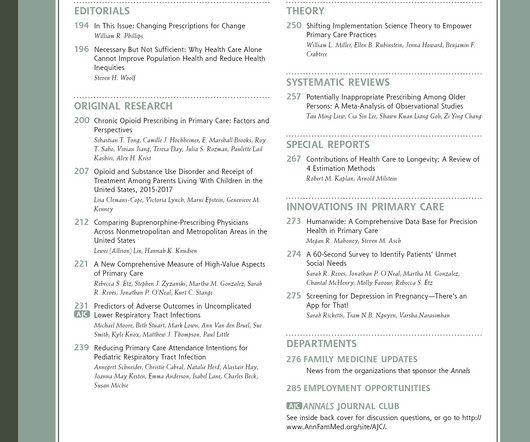Primary Care Provider Perspectives at an Academic Medical Center: Are Telemedicine Visits as Effective as In-person Care? [Survey research or cross-sectional study]
Annals of Family Medicine
NOVEMBER 20, 2024
Context: As academic medical centers purposefully integrate telemedicine visits into primary care, efficacy studies are needed to appropriately guide resource allocation and triage processes. Instrument: Providers randomly received an electronic medical record (EMR)-embedded survey in approximately 10% of telemedicine visits.













Let's personalize your content